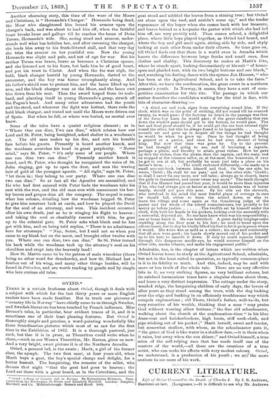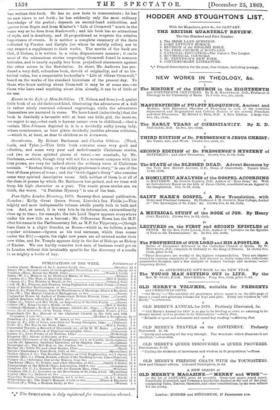CURRENT LITERATURE.
Life of Oliver Cromwell to the Death of Charles I. By J. R. Andrews,. Barrister-at-law. (Longman.)—It is difficult to see why Mr. Andrews. has written this book. He has no new facts to communicate ; he has no new views to set forth ; he has evidently only the most ordinary knowledge of the period ; depends on second-hand authorities, and quotes from Rapin and from Kimber's " Life of Cromwell" much in the same way as he does from Rushworth ; and his book has no attractions of style, and is desultory, and ill-proportioned as respects the relative importance of events. It is neither a complete summary of the facts collected by Forster and Carlyle (on whom he mainly relies), nor in any respect a supplement to their works. The merits of the book are that, if lifeless, it is written in a calm, dispassionate manner ; it omits most of the calumnious stories respecting Cromwell found in common histories, and is nearly equally free from prejudiced statements against the other actors in the Revolution. In short, Mr. Andrews has pro- duced a very dull, colourless book, devoid of originality, and of no his- torical value, but a respectable bookseller's "Life of Oliver Cromwell," based on the works of the standard historians of the present day. To those who know nothing about Cromwell it may be of some use,—to those who have read anything about .him already, it can be of little or no UM



































 Previous page
Previous page